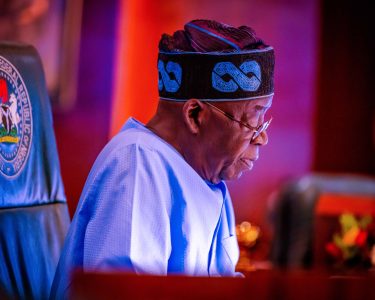World Labour Rankings
NLC decries Nigeria’s inclusion among world’s worst for workers’ rights
Summary
- Nigeria joins global list of 10 worst countries for workers in ITUC 2025 index
- Labour Congress brands ranking a “national embarrassment,” urges urgent reforms
- 92% of Nigerian workers operate in informal sector, with widespread exploitation
- NLC calls for employer collaboration and systemic labour law improvements
Abuja, Nigeria — The Nigeria Labour Congress (NLC) has expressed deep concern over the country’s latest ranking in the 2025 ITUC Global Rights Index, which places Nigeria among the 10 worst countries in the world for workers’ rights. This is the first time Nigeria has appeared on the infamous list, joining countries such as Bangladesh, Egypt, and Türkiye.
Speaking during the 68th Annual General Meeting of the Nigeria Employers’ Consultative Association (NECA) on July 16, 2025, NLC President Joe Ajaero described the development as a “national embarrassment” and an urgent call to action.
The ITUC report rated Nigeria 5 out of 5, signalling “no guarantee of rights” due to systemic issues like restricted collective bargaining, clampdowns on strikes, state surveillance, and violence against trade unionists.
Ajaero lamented that over 92% of Nigeria’s workforce is employed in the informal sector, leaving most workers without contracts, social protections, or legal recourse. He also drew attention to the scourge of child labour, with an estimated 15 million children forced to work under exploitative conditions due to poverty.
The NLC president blamed outdated labour laws, including arbitrary union registration requirements and excessive hurdles to industrial action, for Nigeria’s deteriorating labour environment.
While he acknowledged recent legislative efforts, such as the National Minimum Wage (Amendment) Act 2024, which raised the wage to ₦70,000, he argued that these measures are insufficient without systemic reforms.
Ajaero urged employers under NECA to partner with the NLC in adopting new ILO conventions, promoting dialogue, and protecting workplace freedoms.
Reacting to the NLC’s comments, some Nigerians on X criticised union leaders for their perceived ineffectiveness in fighting for workers, while others expressed anger over persistent neglect of labour standards.
The ITUC’s 2025 report also warned of a global decline in labour rights, with the worst regional scores since tracking began in 2014. For Nigeria, this reinforced the need for immediate reform to improve its global reputation and better protect the rights and dignity of its workforce.







